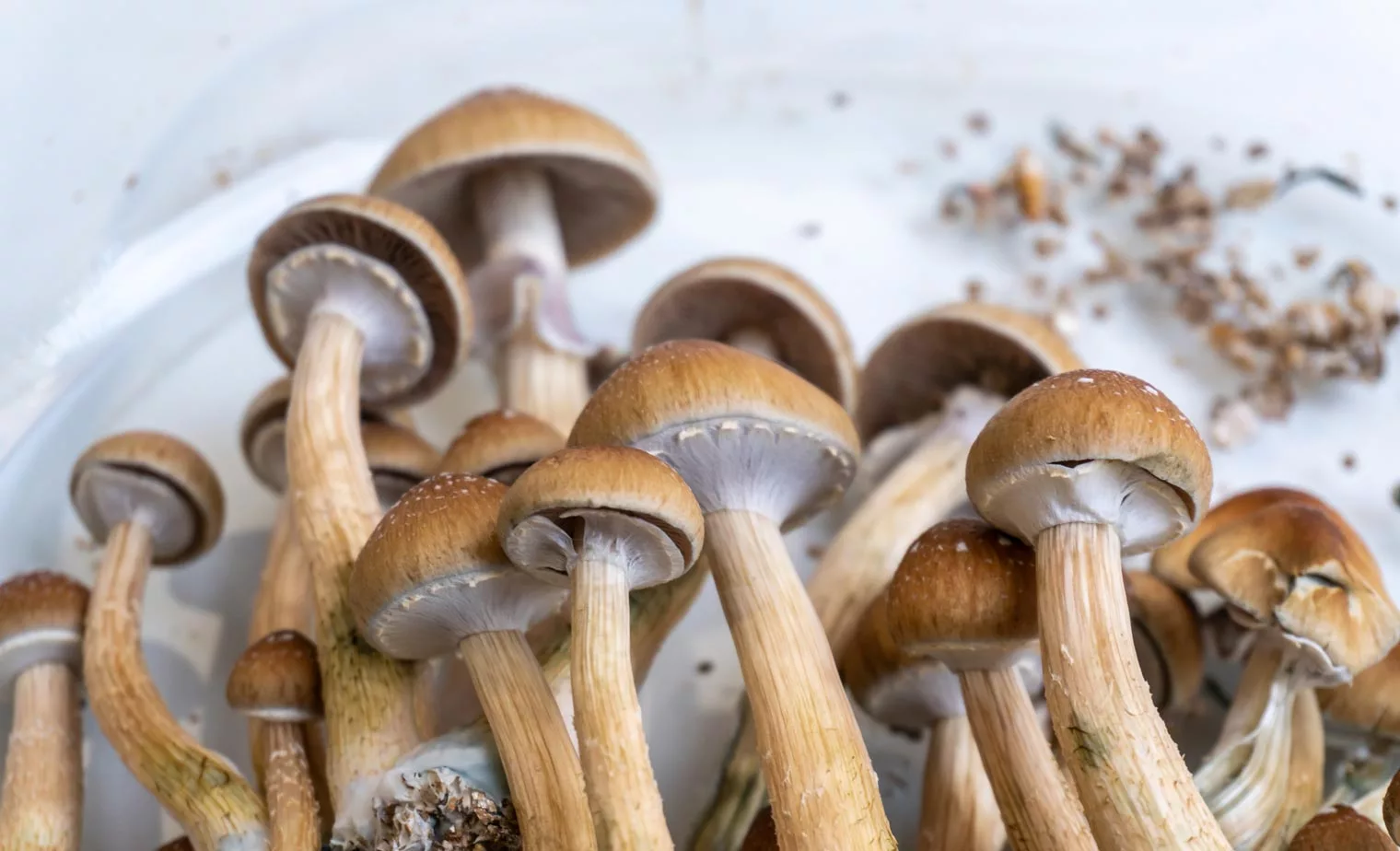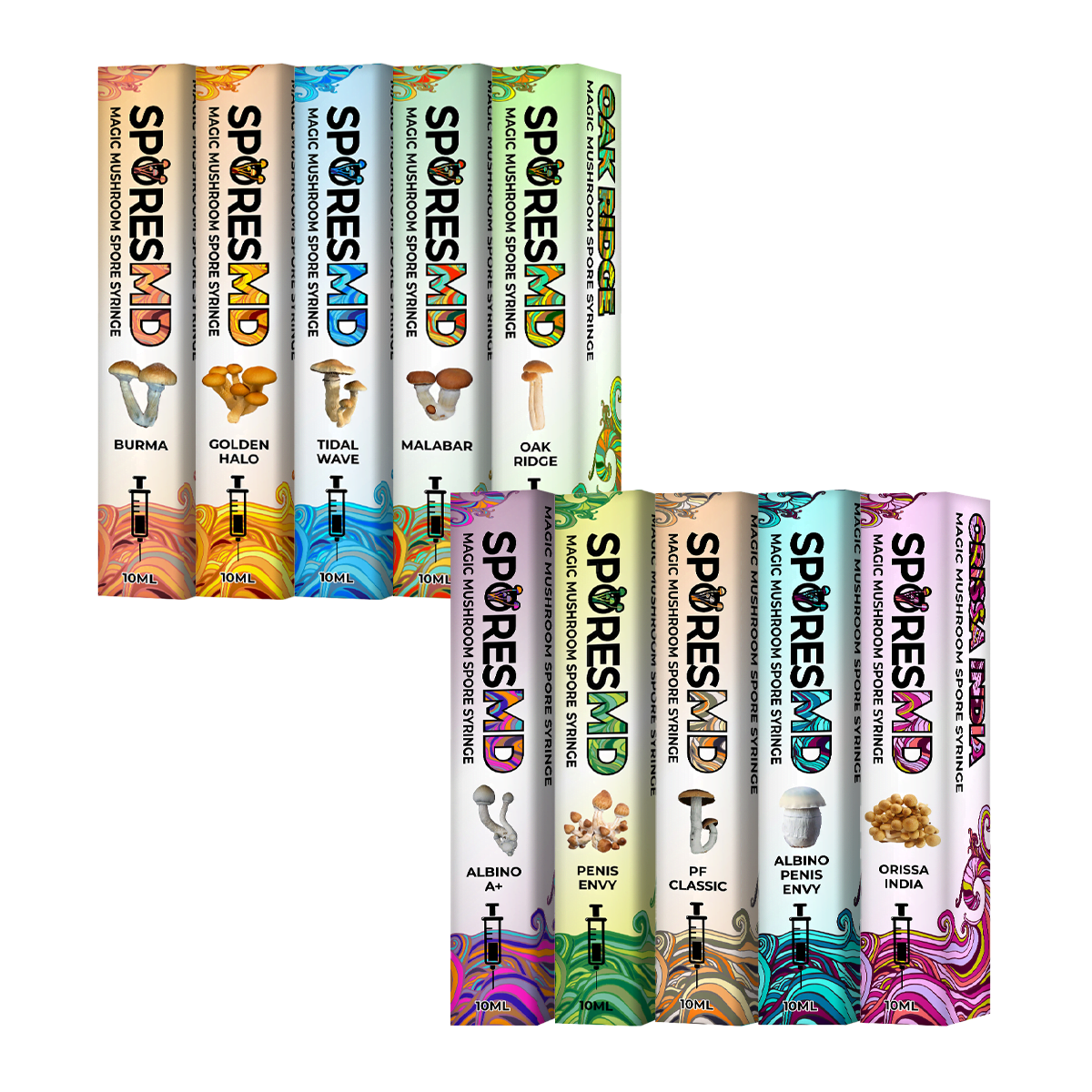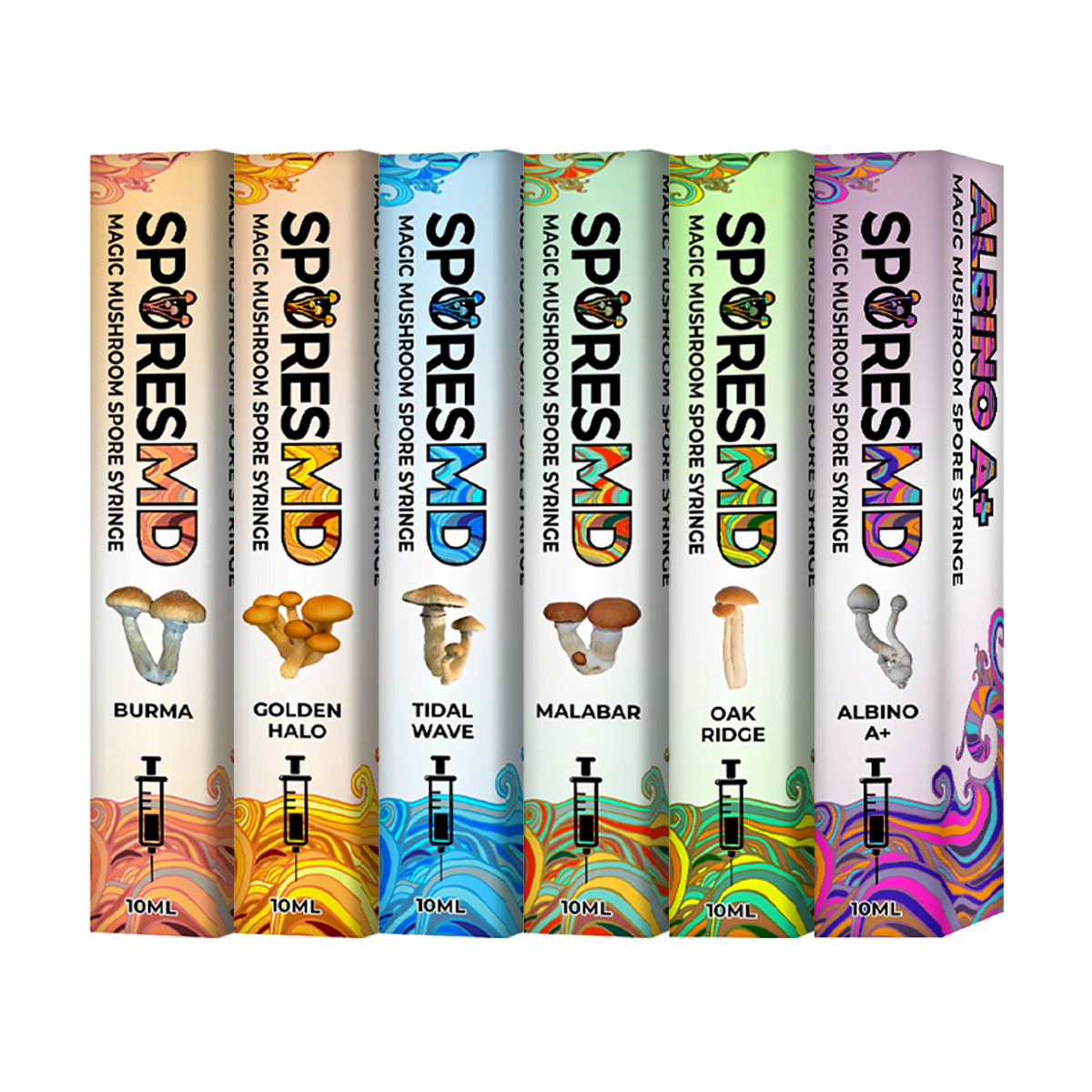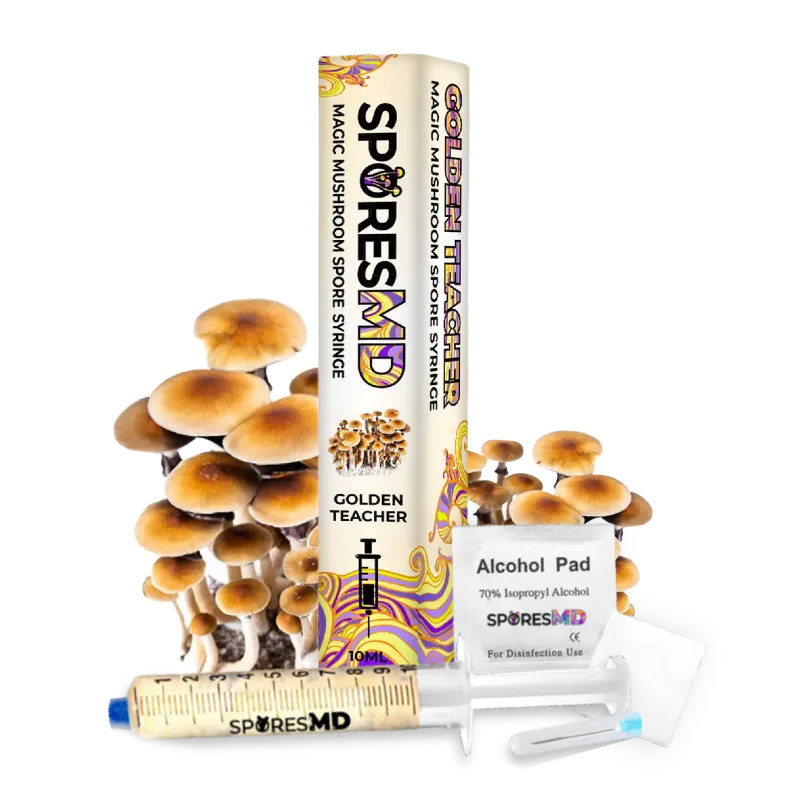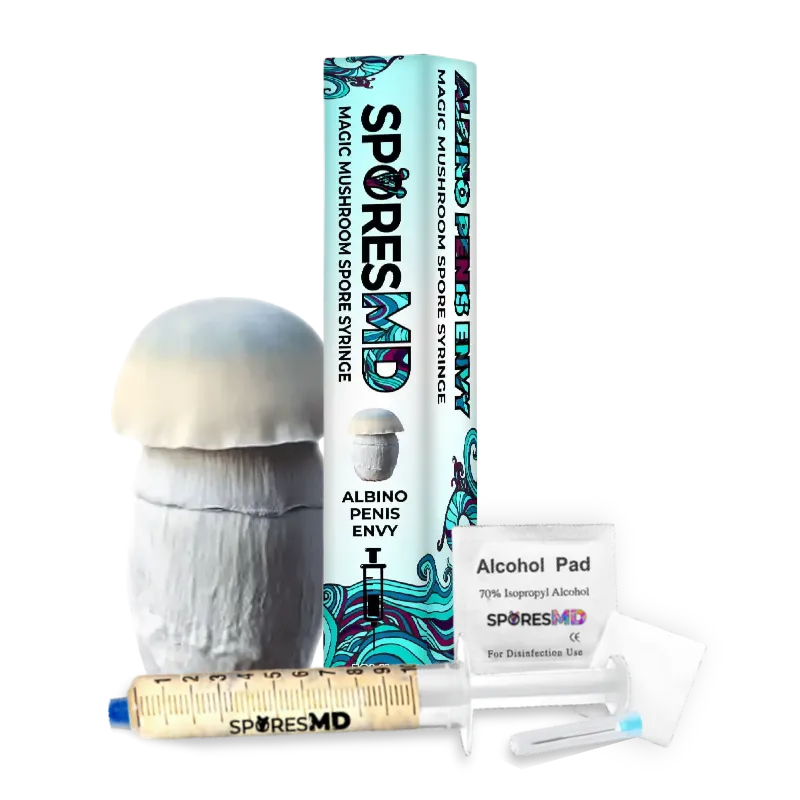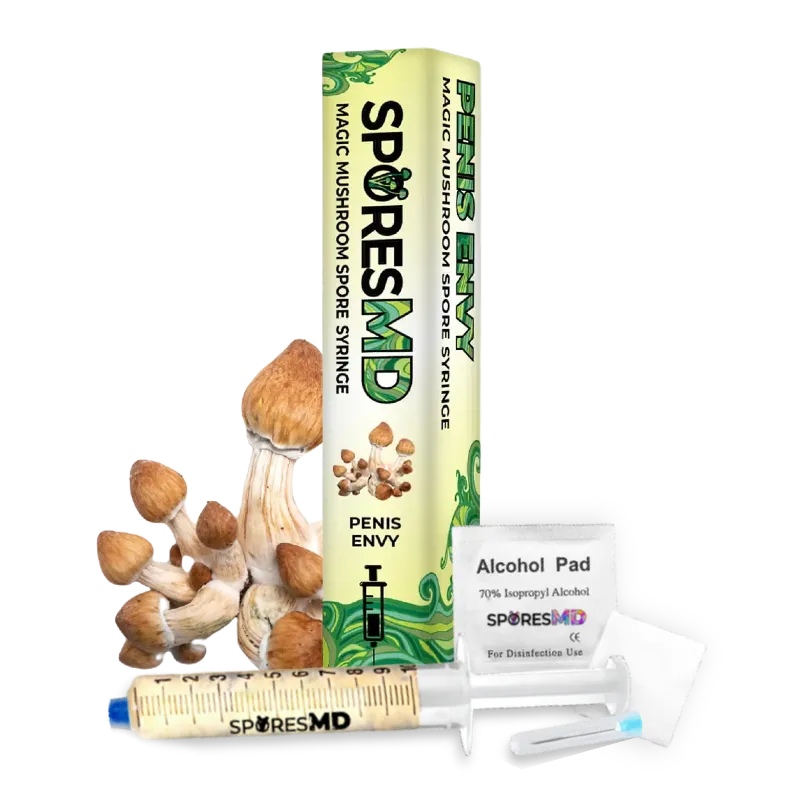Golden Teacher mushrooms, with their distinct gold caps and ethereal aura, have piqued the curiosity of many exploring the realm of psychedelics. Known for their gentle introduction into this world, these mushrooms offer a unique experience that balances visual effects with a sense of calmness. As part of the microscopy species, Golden Teachers have become a sought-after variety since their emergence in the 1980s.
These mushrooms are not just visually striking—they’re also easy to grow, boasting a high resistance to various growing environments. Their moderate potency provides users with a body high that lasts between 2 and 4 hours, often accompanied by mild visual effects. Beyond their recreational appeal, Golden Teachers are gaining attention for their potential health benefits, including antibacterial and antioxidant properties. As the conversation around psychedelic-assisted therapies evolves, understanding the allure of Golden Teachers becomes increasingly relevant.
Understanding Golden Teacher Mushrooms
Golden Teacher mushrooms, or microscopy, stand out in the realm of psychedelic fungi. Their golden caps give them a unique appearance, and they encompass compounds like psilocybin and psilocin, responsible for their psychoactive effects. Emerging in the 1980s, these mushrooms now hold a prominent place among enthusiasts.
Easy cultivation makes Golden Teachers appealing. They adapt to various environments and grow quickly, contrasting with strains like the Mazatapec. This characteristic has contributed to their widespread cultivation and popularity.
The effects are often sought for both recreation and introspection. Users typically experience a body high lasting 2 to 4 hours, accompanied by mild visual effects. The sense of calmness and euphoria associated with them is notable and can vary based on dosage and individual response. Unfavorable effects, like nausea or anxiety, occur but are less common.
Research underscores their potential health benefits. Antibacterial and antioxidant properties augment their application beyond just psychedelic experiences. Interest in their role in psychedelic-assisted therapies is growing, as studies reveal their capacity to enhance creativity, self-awareness, and overall well-being.
Origins and Characteristics
Golden Teacher mushrooms, a variety of microscopy, captivate many with their unique attributes and mysterious beginnings. Known for their golden caps and substantial size, they have intrigued enthusiasts since their surge in interest during the 1980s.
Historical Background
Golden Teacher mushrooms gained prominence in the 1980s. Their official discovery date remains elusive, but they are thought to originate from natural sources, possibly along the Georgia coast in the USA. They share genetic ties with mushrooms from the Caribbean, Mexico, and Southeast Asia, contributing to their diverse lineage and widespread appeal.
Physical Appearance
Golden Teacher mushrooms distinguish themselves with their striking golden cap color. These mushrooms feature large, thick fruiting bodies that make them robust and noticeable. They contain a medium to high concentration of psilocybin, providing users with potent effects. Due to their hardy nature and ease of cultivation, they are especially appealing to beginner growers.
Effects and Benefits
Golden Teacher mushrooms offer intriguing effects and potential health benefits that are drawing interest in both recreational and therapeutic settings.
Psychedelic Experience
These mushrooms contain psilocybin, which transforms into psilocin in the body. Psilocin interacts with serotonin receptors, altering perception, thoughts, and emotions. Users often describe visual, sensory, and auditory hallucinations, experiencing elevated mood and euphoria. Many report seeing enhanced colors and unusual patterns and shapes. Some feel a sense of separation from their ego, often describing this as a mystical or spiritually significant experience. This can lead to connectedness and new perspectives.
Potential Healing Properties
Beyond psychedelic experiences, Golden Teachers could offer healing benefits. Research suggests that psilocybin mushrooms help enhance creativity, self-awareness, and overall well-being. Studies are exploring their use in therapeutic settings for conditions like PTSD. Their moderate potency makes them accessible for those seeking alternative healing methods. Including antibacterial and antioxidant properties, they hold promise for contributing to mental health and wellness support.
Cultivation and Growing Conditions
Golden Teacher mushrooms, known for their resilience and adaptability, thrive in diverse conditions. Their cultivation involves understanding and maintaining specific environmental parameters.
Ideal Environment
Golden Teachers require a consistent ambient temperature of 20 to 25 °C (68 to 77 °F) to grow optimally. During the fruiting stage, introducing a 12-hour light cycle with low-watt T5 lights aids growth, though it’s not strictly necessary. High humidity is crucial, especially in the fruiting phase, to support proper development.
Common Challenges
Contamination during cultivation poses significant challenges. Techniques like using a sterile environment and clean equipment, such as pressure cookers for sterilization (or you can get a pre-sterialized mushroom grow bag) and spore syringes, help mitigate potential issues. Managing humidity, crucial for successful growth, often proves tricky if not monitored carefully, leading to suboptimal yields. By addressing these challenges, successful cultivation becomes more achievable.
Legal Status and Ethical Considerations
Golden Teacher mushrooms contain psilocybin and psilocin, making them illegal under the federal Controlled Substances Act (CSA) in the US. These compounds are Schedule I controlled substances, which classifies them alongside drugs with high potential for abuse and no recognized medical use. Despite the illegal status of the mushrooms, their spores remain legal as they don’t contain psilocybin or psilocin unless used to cultivate psychedelic mushrooms.
While federal laws are strict, state and local jurisdictions vary. Some areas have decriminalized or deprioritized the enforcement of laws against the possession and cultivation of psychedelic mushrooms. Examples include cities like Denver and Oakland, where users face reduced penalties, reflecting shifting attitudes toward the therapeutic potential of psilocybin. However, these changes create a complex legal landscape, and users should keep informed about local regulations.
Ethical considerations include understanding the impact of mushroom use on individuals and communities. It’s essential to recognize the potential for both positive and negative effects on mental health. Additionally, consuming these mushrooms should be approached responsibly by considering the societal implications and respecting cultural practices associated with psychedelic use.
Conclusion
Golden Teacher mushrooms stand out for their unique combination of moderate potency and ease of cultivation, making them a favorite among both recreational users and those exploring therapeutic benefits. Their fascinating history and distinctive appearance add to their allure, while ongoing research continues to uncover their potential in enhancing well-being and creativity. As attitudes towards psychedelics evolve, the legal landscape remains complex, urging us to approach these mushrooms with responsibility and respect. Whether you’re cultivating them or exploring their effects, understanding their properties and ethical considerations is key to a meaningful experience.
Frequently Asked Questions
What Are Golden Teacher Mushrooms?
Golden Teacher mushrooms are a popular variety of the microscopy species, known for their distinctive gold caps. They are highly sought after for their moderate potency, which provides a calming body high along with mild visual effects. They’re often used for both recreational and introspective purposes.
What Effects Do Golden Teacher Mushrooms Have?
Most users report calming effects, a sense of euphoria, and mild visual hallucinations that last around 2 to 4 hours. They may also enhance creativity and self-awareness. However, some individuals might experience side effects like nausea or anxiety.
Where Do Golden Teacher Mushrooms Originate?
The exact origins of Golden Teacher mushrooms are unclear, but they are believed to have emerged along the Georgia coast in the USA. They share genetic ties with mushrooms from the Caribbean, Mexico, and Southeast Asia.
How Can Golden Teacher Mushrooms Be Cultivated?
Golden Teacher mushrooms are easy to cultivate due to their resilience and adaptability. They thrive in temperatures of 20 to 25 °C (68 to 77 °F) with high humidity, especially during the fruiting stage. Attention to humidity and contamination is essential for successful cultivation.
Are Golden Teacher Mushrooms Legal?
In the US, psilocybin and psilocin, the active compounds in Golden Teacher mushrooms, are classified as illegal under the federal Controlled Substances Act. However, mushroom spores are legal. Laws vary by state and locality, with some areas decriminalizing possession and cultivation.
What Are the Health Benefits of Golden Teacher Mushrooms?
Golden Teacher mushrooms have potential health benefits, including antibacterial and antioxidant properties. Their use in psychedelic-assisted therapies is under research, highlighting their potential in enhancing creativity, self-awareness, and overall well-being.
What Is the Psychedelic Experience Like with Golden Teacher Mushrooms?
The psilocybin in Golden Teachers transforms into psilocin in the body, interacting with serotonin receptors. This alters perception, thoughts, and emotions, often resulting in visual, sensory, and auditory hallucinations, elevated mood, and feelings of ego separation and connectedness.
What Are the Challenges in Cultivating Golden Teacher Mushrooms?
Common challenges include managing humidity and contamination. Successful cultivation requires maintaining optimal environmental conditions, like consistent temperature and humidity, and using techniques to prevent contamination for a fruitful harvest.
How Are Golden Teacher Mushrooms Linked to Psychedelic-Assisted Therapies?
Research into Golden Teacher mushrooms suggests they may enhance creativity, self-awareness, and well-being, making them subjects of interest in psychedelic-assisted therapies. They show potential for therapeutic applications in conditions such as PTSD.
What Ethical Considerations Are Associated with Using Golden Teacher Mushrooms?
It’s important to consider the impact of mushroom use on individuals and communities. Responsible consumption should respect cultural practices associated with psychedelics, focusing on informed and ethical use within personal and societal contexts.

